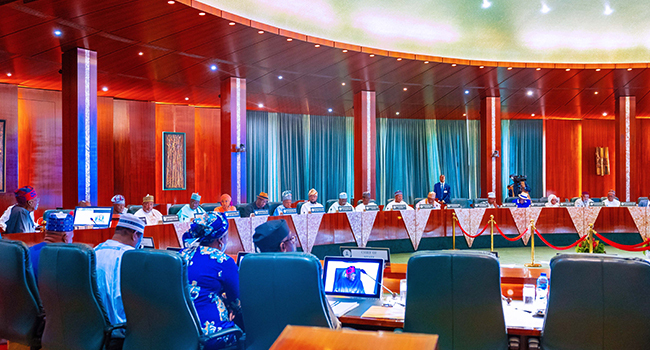
FEC Approves Life Insurance for Gov’t Officials, Civil Servants
The Federal Executive Council (FEC) has approved several critical policy decisions aimed at strengthening the welfare of public servants, diversifying the economy, and addressing unemployment.
Chief among these was the renewal of the Group Life Assurance Scheme for federal government employees, a move described as a testament to the Tinubu administration’s commitment to public service welfare.
Announcing the decision while briefing journalists at the State House, Abuja, after the FEC meeting presided over by President Bola Ahmed Tinubu, the Head of the Civil Service of the Federation, Mrs. Didi Walson-Jack, said the scheme, which covers the 2025/2026 policy year, is designed to provide financial succour to the families of deceased federal public servants, including top-ranking government officials.
“The Federal Government has taken out a life policy on each public servant. In the unfortunate event of death, the next of kin will receive benefits to cushion the loss.
“This underscores the importance that President Bola Ahmed Tinubu’s administration places on the welfare of federal workers,” Walson-Jack said.
According to her, the coverage extends not only to civil servants but also includes the President, Vice President, Ministers, Permanent Secretaries and personnel in Treasury-funded ministries, departments, and agencies (MDAs).
The policy also applies to key paramilitary and uniformed agencies such as the Nigeria Immigration Service, Nigeria Security and Civil Defence Corps, Nigeria Correctional Service, the Federal Fire Service, the Federal Road Safety Corps, the National Drug Law Enforcement Agency (NDLEA), and the Office of the National Security Adviser.
Walson-Jack also said 17 insurance underwriters have been appointed to manage the policy, which is renewable annually.
The policy, according to her, will become active upon the payment of premiums, in line with the federal government’s “no premium, no cover” directive.
“This policy has been in existence for several years but many public servants remain unaware of its provisions,” Walson-Jack said, adding that her office is set to embark on a nationwide sensitisation campaign.
Also briefing journalists after the Council meeting, the Minister of Art, Culture, Tourism and Creative Economy, Hannatu Musawa, said Council had approved a bold new initiative to monetise Nigeria’s rich cultural and tourism assets.
According to Musawa, the plan, developed in partnership with the Ministry of Finance Incorporated (MOFI), aims to create a new revenue stream while promoting national heritage.
“For the first time in Nigeria’s history, a standalone ministry is tasked with unlocking the potential of the cultural, creative, and tourism sectors. We are looking to contribute $100 billion to Nigeria’s economy by 2030 by monetizing both tangible and intangible assets”, Musawa stated.
Tangible assets include national museum collections, historical monuments, landmark buildings, and federally owned artworks.
Intangible assets range from indigenous languages and oral traditions to cultural textiles like adire, culinary heritage such as Ijebu garri, and sacred landscapes and cultural festivals.
Musawa emphasized that the strategy is focused on self-sustaining economic growth by leveraging existing resources without placing additional pressure on the national budget.
“This is about using what we already have to create wealth, identity, and pride. Our cultural capital is immense, and now we are putting in place the framework to monetize it responsibly,” she said.
She said the initiative will unfold in four phases: assessment of available assets, valuation, strategy development for monetization, and implementation.
The asset verification process, she noted, has already been completed, paving the way for the next steps in collaboration with MOFI.
